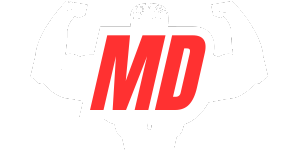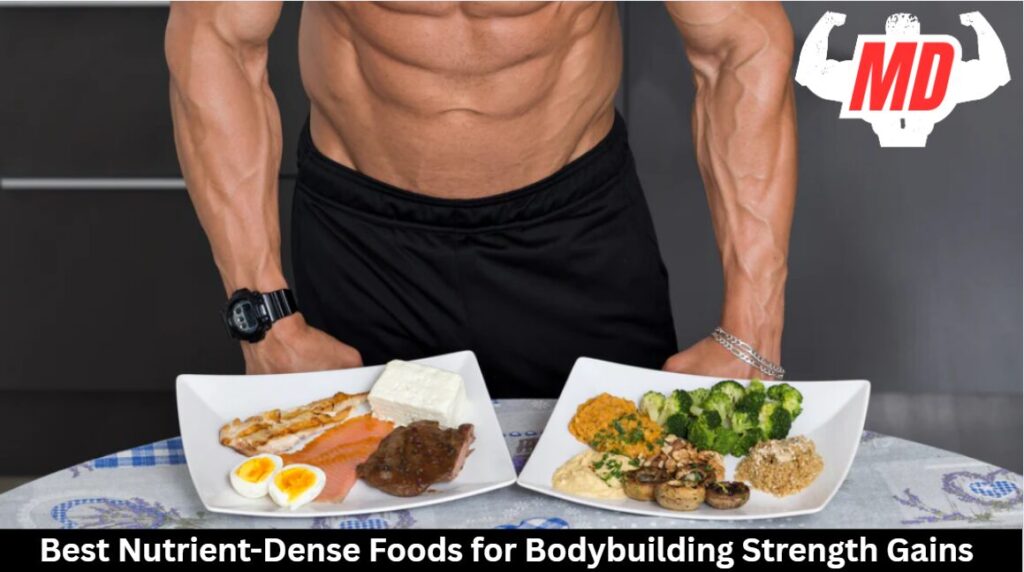For maximum muscle growth and strength gains, prioritize protein-rich foods like chicken breast, eggs, and salmon spread throughout the day. Pair these with nutrient-dense vegetables (leafy greens, bell peppers), strategic carbs (oats, sweet potatoes) around workouts, and healthy fats (nuts, avocados) for hormonal support. Don’t overlook inflammation-fighting superfoods like berries, turmeric, and fermented foods.
The right nutritional strategy transforms your training results beyond what exercise alone can accomplish.
Protein-Rich Whole Foods That Maximize Muscle Synthesis
The macronutrient that directly fuels muscle synthesis is protein. Your body needs complete protein sources that supply all nine amino acids, which cause muscle growth. Focus on lean meats and grass-fed beef that provide about 25-30g of protein per 100g serving.
Eggs contain about 6g of protein apiece, and fatty fish like salmon provide high-quality protein with anti-inflammatory omega-3s. Build meals around protein. Spread the calories around the day instead of all at one meal. Such timing favors protein synthesis and ongoing muscle repair.
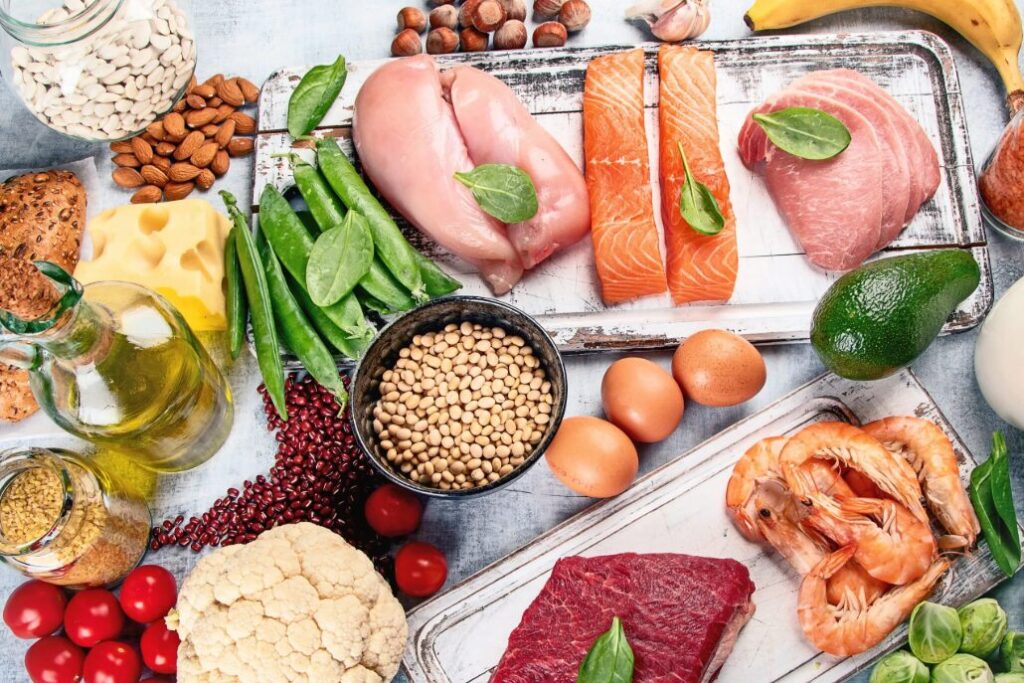
Micronutrient-Dense Vegetables for Enhanced Recovery
Beyond protein, your bodybuilding success depends heavily on micronutrients found in vegetables that power recovery and performance. Dark leafy greens deliver iron and vitamin K, which support oxygen transport to muscles and reduce recovery time between intense workouts.
Brightly colored vegetables provide unique performance enhancement benefits. Red bell peppers pack vitamin C for collagen synthesis, while purple eggplants contain anthocyanins that fight exercise-induced inflammation. Don’t overlook cruciferous vegetables like broccoli and cauliflower, which contain compounds that help manage hormonal balance during heavy training cycles.
For maximum recovery benefits, aim to fill half your plate with these nutrient powerhouses at most meals. Your muscles won’t just grow stronger. They’ll repair faster when supplied with these essential vitamins and minerals.
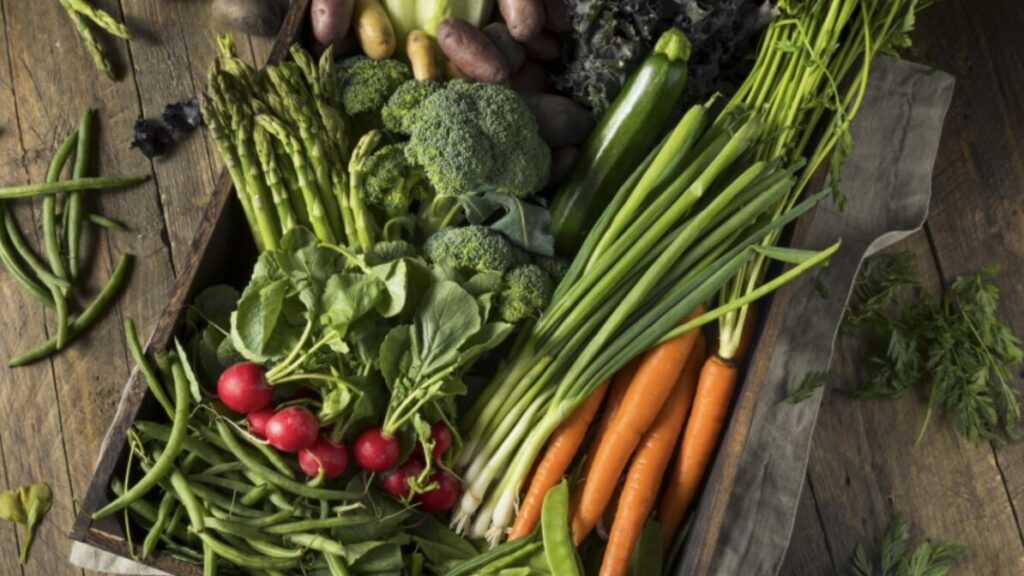
Strategic Carbohydrate Sources for Performance and Growth
Despite their bad rap in some fitness circles, carbohydrates remain the main fuel source during intense bodybuilding workouts. Glycogen powers your muscles through challenging sets and attenuates training intensity.
Prioritize whole grains like oats, brown rice, and quinoa for slow energy release and fiber for digestion and satiety. The steady fuel of complex carbohydrates avoids the crash of simple sugars.
Lentils, chickpeas, and black beans combine carbohydrates with plant protein. For micronutrient support, incorporate colorful fruits and vegetables, which provide the vitamins and antioxidants needed for recovery while contributing to your carbohydrate intake.
Time these foods strategically. Consuming more around workouts when your body can utilize them most effectively.
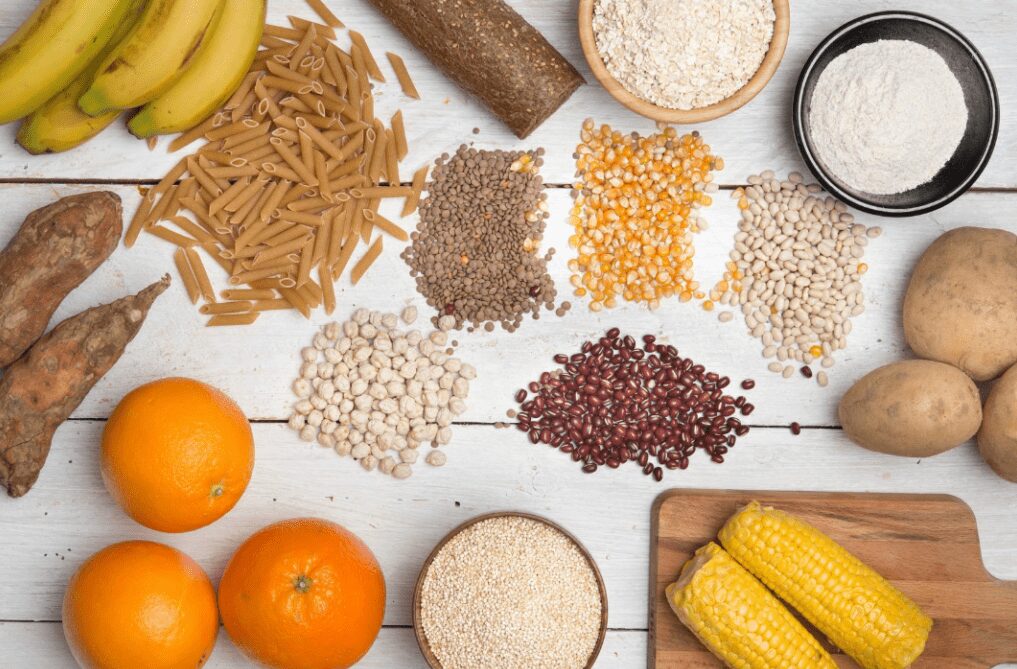
Healthy Fat Options That Optimize Hormonal Function
The body’s hormonal system relies heavily on dietary fats, making them a key macronutrient for bodybuilders focused on optimizing natural testosterone production and overall anabolic processes. Incorporating healthy fats strategically supports your strength gains while providing essential minerals that facilitate muscle recovery.
Prioritize nuts and seeds like walnuts, almonds, and flaxseeds, which deliver hormone-supporting omega-3 fatty acids along with zinc and magnesium. Prioritize nuts and seeds such as walnuts, almonds, and flaxseeds for their hormone-supporting omega-3 fatty acids, plus zinc and magnesium.
Full-fat dairy sources, including Greek yogurt and cottage cheese, may provide conjugated linoleic acid (CLA) that may help with body composition when consumed regularly. Don’t miss egg yolks for cholesterol and avocados for monounsaturated fats that reduce inflammation after a workout.
Include these fat sources in your daily meals instead of just during training sessions.
Superfoods That Amplify Strength Training Results
Although most bodybuilders eat traditional protein sources, superfoods can really help you speed up your training adaptations and recovery. The berries also contain powerful antioxidants that fight against exercise-induced inflammation, which is perfect for recovering between sessions.
Not to be missed: fermented foods like kimchi and kefir support the gut. These represent a very important but often overlooked component of bodybuilding nutrition. Turmeric + tart cherries reduce muscle soreness and allow you to train harder and more frequently. Flavonoids from cacao increase nitric oxide production in growing muscles. These ingredients create the best cellular environment for maximum muscle growth.
Frequently Asked Questions
How Does Hydration Affect Nutrient Absorption for Muscle Growth?
Proper hydration enhances nutrient transport to muscles, optimizes digestion, and supports metabolic processes. You’ll experience better absorption of proteins and electrolytes when you’re well-hydrated, directly boosting your muscle recovery and growth potential.
Can Intermittent Fasting Enhance Strength Gains While Bodybuilding?
Intermittent fasting can enhance strength gains when you time your feeding window around workouts. You’ll maximize protein synthesis and growth hormone production, but you’ll need to consume adequate calories and nutrients during eating periods.
Which Foods Help Reduce Inflammation After Intense Training?
Consume fatty fish like salmon, colorful berries, leafy greens, turmeric, ginger, olive oil, tart cherries, and walnuts. They have antioxidants and omega-3s that’ll help reduce inflammation and speed up your post-workout recovery.
Are Organic Foods Worth the Cost for Bodybuilding Nutrition?
Organic foods aren’t essential for bodybuilding success. While they may reduce pesticide exposure, you’ll get similar protein, carbs, and nutrients from conventional options. Spend extra money only if it fits your budget.
How Do Nutrient Requirements Change With Age for Strength Athletes?
You need more protein and fewer calories due to a slower metabolism, more vitamin D and calcium for healthy bones, and more antioxidants to combat inflammation and speed recovery as you age.
